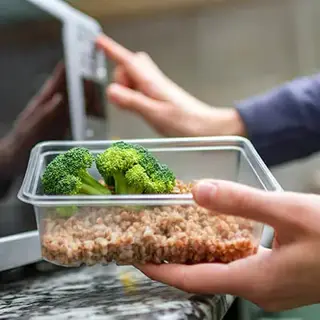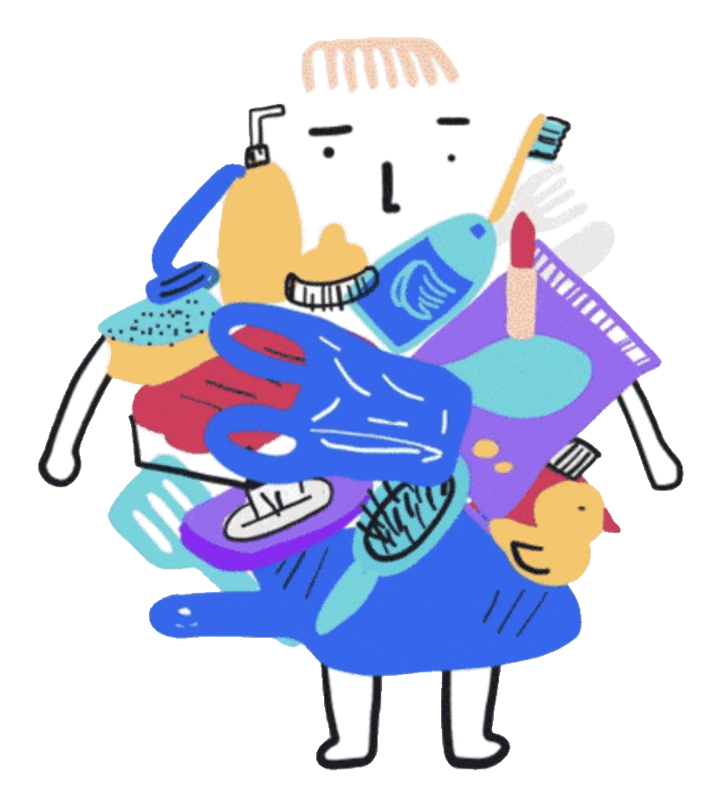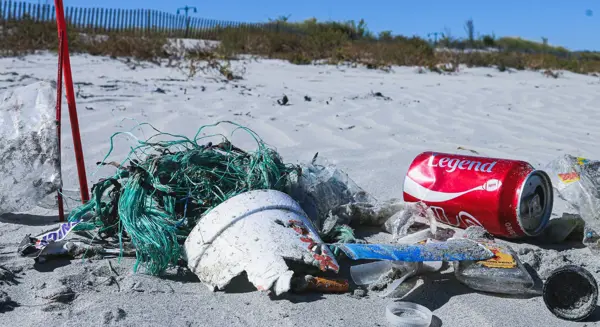‘Hey Macklemore, can we go thriftshopping?’ In the first line of the 2012 song by American rapper Macklemore, a girl asks if they can go to the thrift store. In the 3.5 minutes that follow, we see the rapper proudly strolling through the thrift store, polishing its dusty image into a new, hip, trend. The solution to the infinite production drive of manufacturers
In the documentary Buy Now! The Shopping Conspiracy (Netflix) the makers use five ‘rules for profit maximisation’ to show how large companies operate today. From boosting sales figures through the one-click-buy principle to gluing electronics shut, making it more difficult – if not impossible – to repair these products. The documentary shows the dark side of our never-ending urge to buy. An urge that is both created and maintained by large companies.
Few consumers consciously consider the consequences of their buying behaviour. Who hasn't ever bought a new sweater when they already had enough in their wardrobe? By constantly flooding us with new possibilities – a company like Shein brings 1.3 million new items of clothing onto the market every year – we are continually tempted to buy (unnecessary) products.
But then I donate my old jumper to the Salvation Army or take it back to the shop to be recycled, don't I? A small effort for a good feeling. But the good feeling you get from that will disappear more easily than the environmental damage you unknowingly cause. H&M sends 15 million ‘recyclable’ garments to Ghana every week. However, with a population of 30 million Ghanaians, it is impossible for the local population to give all these products a second life. The result: the lion's share of the plastic-soaked garments ends up on the beach, in the sea and in living organisms.
Large companies, from the clothing industry to the tech industry, are mainly concerned with selling new products, wasting the old ones, lying about the facts, hiding the waste streams and controlling the market. All to keep the consumer ignorant and addicted to buying. All for maximum profit.
The result is that we – all 8 billion people on this planet – create 500 million tonnes of plastic waste and 50 million tonnes of electronic waste every year (13 million phones are thrown away every day). Waste that could fill Tokyo in 2050 and with which we also indirectly pollute ourselves.
Now that we know this, we can no longer deny it. Because let's be honest: haven't we all produced more than enough stuff already? So it's high time to get the old-fashioned bartering going again and give the dusty thrift shop a new, hip makeover.
Are you also fed up with manufacturers' endless drive for production? Then help us close the tap and Donate now.
Rynaldo Koerhuis (1995) advises, sells and writes. He writes a blog about a current topic for Plastic Soup Foundation twice a month.






